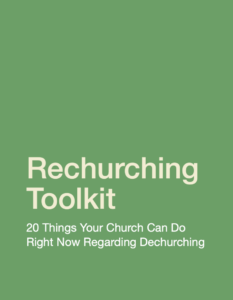Few words in any language evoke the kind of feelings we have when we hear the word father. Some of us will feel a sense of loss this Christmas season, either because we had fathers who were wonderful but are no longer with us, or because we have unfulfilled longings for the kind of father we’ve never had.
How comforting, then, to read of the birth of a child whose name shall be called “Everlasting Father” (Isa. 9:6). Under his care, his protection, and his provision, we are safe and will be satisfied for all eternity.
Of all the names attributed to Jesus in Isaiah 9:6, Everlasting Father intrigues me the most because it’s the one I understand the least. How can Jesus the Messiah, the second person of the Godhead, be called Everlasting Father?
1. Isaiah is not confusing Jesus the Messiah with the first person of the Trinity.
Isaiah isn’t teaching us that God the Son, the second person of the Trinity, is the same person as God the Father. (The early church denounced this idea as the heresy of modalism.)
It’s unlikely Isaiah has the Trinity in mind at all when he says the Messiah will be called Everlasting Father. It’s not the Messiah’s role within the Godhead, but the Messiah’s character toward us that Isaiah has in mind. Concerning the language of “Everlasting Father,” Sam Storms calls it “a descriptive analogy pointing to Christ’s character . . . he is fatherly, father-like, in his treatment of us.”
2. Isaiah is highlighting the divine nature of the Messiah.
More than any other author, Isaiah loves to speak of eternity. He speaks of God as “the One who is high and lifted up, who inhabits eternity, whose name is holy” (Isa. 57:15). And here in Isaiah 9:6 he uses the same type of language to refer to the Messiah. He’s the Alpha and the Omega, the beginning and the end—the one who is and who was and who is to come—the Almighty (Rev. 1:8).
Isaiah is speaking of a child who will be born some 700 years in the future—yet he makes clear that this child is the author of eternity, the “father of time”! This truly boggles the mind.
3. Jesus the Messiah is the only one who can reveal God’s fatherly character to us, for he is one in nature and essence with the Father.
Isaiah couldn’t have fully seen the light of glory that shone from Jesus when he dwelt among us. But from Jesus’s own lips, words such as these were spoken:
- I and the Father are one . . . know and understand that the Father is in me and I am in the Father. (John 10:30, 38)
- Have I been with you so long, and you still do not know me, Philip? Whoever has seen me has seen the Father. How can you say, “Show us the Father”? Do you not believe that I am in the Father and the Father is in me? (John 14:9–10a)
If you want to know what God is like, look at Jesus. Jesus is the perfect image of God, and the exact representation of his being. Jesus alone makes the Father known. Indeed, no one can come to the Father except through him (John 14:6).
Perfect Father
Herman Bavinck observed that Jesus “takes away our guilt and again opens the way to [God’s] fatherly heart.” Everything you’ve ever dreamed a father could be—everything you’ve ever wanted from your relationship with your earthly father—Jesus is and will be for you. Your Messiah will forever be perfectly father-like in the way he shepherds and leads you. In Jesus, you have a perfect father forever.
Sadly, the word father doesn’t always bring to mind someone who shepherds, affirms, and stays close. Instead, it connotes adjectives like distant, aloof, passive, absent, unreliable, selfish, uncaring, and cruel. Even among Christian families, far too many children experience emotional indifference and self-centered neglect from their dads.
Not so from Jesus. Jesus, your Everlasting Father, came down at Christmas into a broken and sinful world to fill our hearts with heaven’s love, and to teach us how to love one another. He came to make sons and daughters out of his enemies. This is the Father’s gift to us at Christmas.
Our Everlasting Father
How comforting it is to read, “His name shall be called . . . Everlasting Father” (Isa. 9:6). Once we become a child of Christ’s, we are his and he is ours forever. Forever. There will be no goodbyes with him. Nothing in all creation will be able to separate us from his love. Not even death itself—indeed, it will only draw us nearer.
“There is no unfathering Christ, and there is no unchilding us,” Charles Spurgeon once said. “He is everlastingly a father to those who trust in him.” Praise God for our eternal security in Christ, our Everlasting Father.
20 Things You Can Do Right Now to Prevent Dechurching
 We’re currently experiencing the largest and fastest religious shift in the history of the United States. But there are practical things we can do inside our local churches.
We’re currently experiencing the largest and fastest religious shift in the history of the United States. But there are practical things we can do inside our local churches.
Jim Davis and Michael Graham have commissioned the largest and most comprehensive study of dechurching in America. Informed by their findings, they’ve written a book and developed this corresponding toolkit with resources to help you address the dechurching phenomenon.
We’re delighted to offer you the ‘Rechurching Toolkit’ for FREE today. Click on the link below to get instant access to this resource—worth $100—and be equipped to understand and address the issues behind dechurching.































